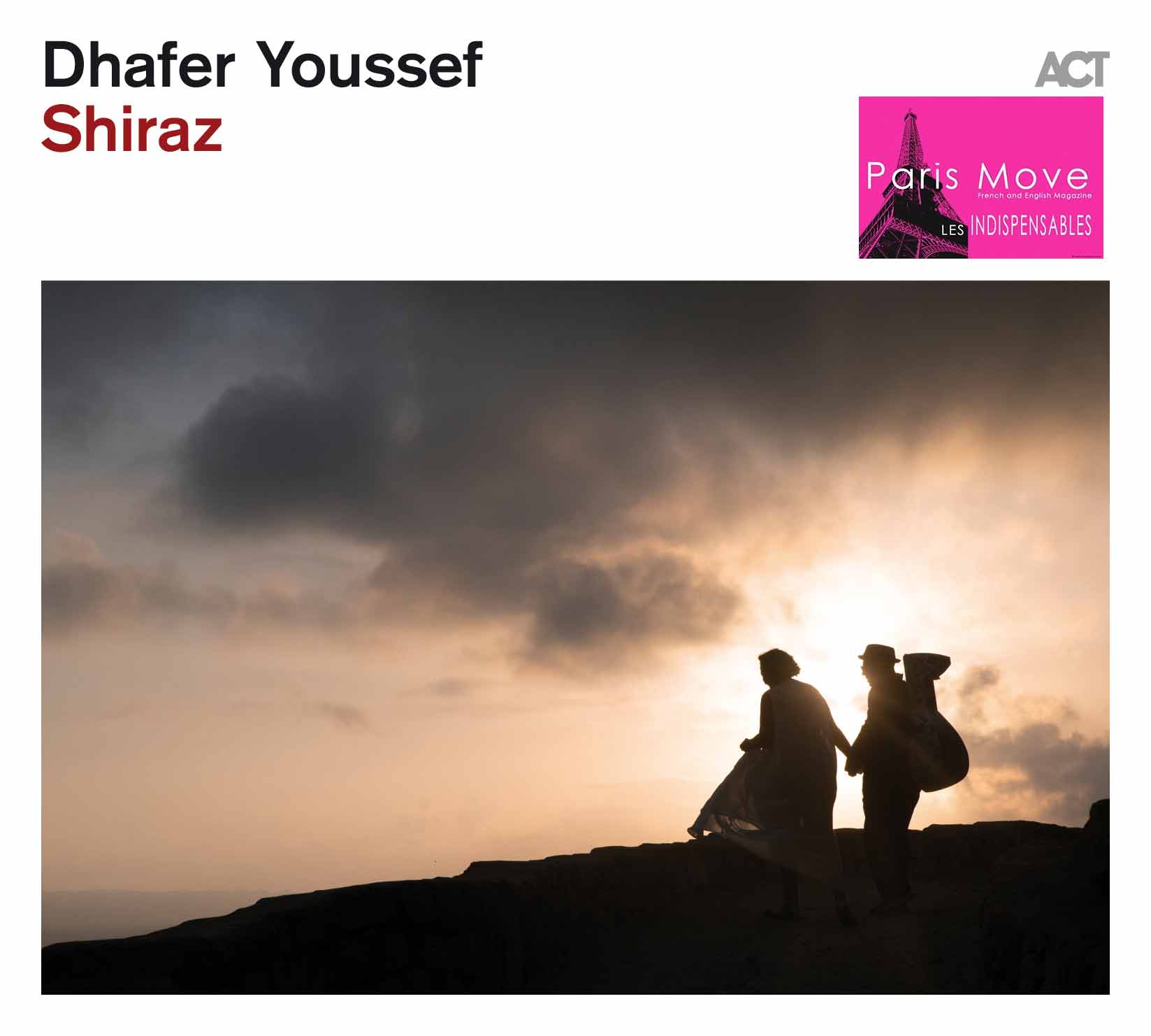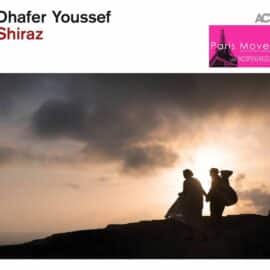| World Jazz |

Dhafer Youssef’s Journey: The Oud Master’s Voice Between Worlds
By any measure, Dhafer Youssef is a rare figure in modern music, a Tunisian-born oud virtuoso who has built bridges between Arabic traditions and global jazz, between spiritual contemplation and contemporary sound. Yet even for longtime followers of his work, his new release comes as a surprise. For the first time, Youssef has joined the acclaimed German label ACT, a move that feels both inevitable and long overdue.
Artists from ACT’s roster, bassist Chris Jennings and guitarist Nguyên Lê among them, have been close collaborators for years. Hearing Lê’s lyrical, electric phrasing entwine once again with Youssef’s haunting voice feels like a reunion of kindred spirits rather than a mere session partnership. Their interplay brings depth to an album that, at every turn, seems to balance intimacy and grandeur, shadow and light.
A Voice That Defies Boundaries
When Dhafer Youssef sings, his voice seems to rise beyond human reach, a sound suspended between the earthly and the celestial. Listeners have often compared that ethereal tone to the English countertenor Alfred Deller, who died in 1979, and whose pure, unearthly phrasing helped reimagine sacred vocal music for the modern era. There is something of Deller’s audacity in Youssef’s approach: a willingness to let the voice float, to trust silence and air as much as sound.
That openness is not merely technical. For Youssef, singing is a declaration of faith, not in any particular doctrine, but in the universal power of beauty and connection. His voice, at once ancient and contemporary, is a reminder that music can speak the language of love, devotion, and longing without translation.
The Personal Becomes Universal
The oud player’s homeland, Tunisia, runs through his compositions like a subtle current. But Youssef’s new album is not a nostalgic return to origins; it is a dialogue with the present. What gives the record its emotional weight is the profoundly personal story behind it. The album is dedicated to his wife, Shiraz Fradi, and traces the contours of their shared journey, a relationship marked by tenderness, turbulence, and transformation.
This is Youssef’s most introspective recording to date. It does not merely recount love; it examines it , love as resilience, as fragility, as the constant interplay between darkness and light. The result is an album that feels lived in, deeply human, and unmistakably honest.
Roots and Routes
Youssef’s art has always been shaped by movement. Born in the coastal town of Teboulba, he grew up immersed in the Sufi tradition of Islamic chant. Those early encounters with devotional music left a lasting imprint, the sense that every note could be both a prayer and a question. But for a young man with restless curiosity, the small-town life of the Sahel soon felt too narrow.
In 1990, Youssef left Tunisia for Vienna, a leap into the unknown that would define the rest of his life. There, he took on whatever work he could find, cleaning windows, washing dishes, waiting tables, while quietly building connections in the city’s rich cultural scene. His entry point came through a theater troupe, which introduced him to local musicians and opened the door to Europe’s avant-garde jazz world.
Vienna gave Youssef both hardship and possibility. It was there that he began fusing the rhythmic pulse of North African traditions with the improvisational language of jazz and the harmonic sensibility of European modernism. Over the years, his collaborations would grow to include luminaries such as Christian Muthspiel, Renaud Garcia-Fons, and Markus Stockhausen, all drawn by his rare ability to make ancient music sound startlingly new.
Confluence of Cultures
The musicians featured on this new record embody that same global sensibility. Nguyên Lê, born in France to Vietnamese parents, has long been on a parallel quest: exploring his cultural roots while remaining one of the most inventive guitarists of his generation. On Youssef’s album, their dialogue feels almost telepathic. Lê’s tone, crystalline, elastic, and unpredictable, meets Youssef’s oud in a space where East and West dissolve into one.
Listening to the record, one senses the shared history behind the music, not just years of collaboration, but a mutual belief in the power of cultural dialogue. Youssef’s sound draws from Arabic maqam and Sufi melody, yet it welcomes modern influences: the structure of jazz, the intimacy of chamber music, the drive of rock, even the ambient shimmer of electronic textures. The oud becomes a traveler’s instrument, crossing borders with ease.
The Spiritual Dimension
At its core, Youssef’s music is an act of reconciliation, between self and other, between heritage and innovation. “For those who have migrated,” he once said in an interview, “you always carry your culture within you. But what matters most is learning to understand the other.” It is a lesson as musical as it is philosophical.
In this album, that spirit of openness takes on renewed urgency. Beyond the personal story of Shiraz, Youssef’s compositions speak to a wider moment, one marked by cultural tension and noise, where dialogue too often gives way to division. His music offers a different path: one of listening, of silence, of shared breath.
A Bridge Across Time
To call this Youssef’s finest work may be to state the obvious. What stands out is not only his mastery of craft but his clarity of purpose. The album is both deeply rooted and restlessly forward-looking. It embodies a conversation between past and present, between tradition and experiment, between the Arabic oud and the global ear.
In an age of fragmentation, Youssef’s sound insists on connection. It invites us to slow down, to listen across boundaries, to hear the resonance between cultures. It reminds us that identity is not a cage but a horizon, an expansion of self through encounter.
Ultimately, Dhafer Youssef’s new album is more than a musical statement. It is a meditation on what it means to belong and to wander, to love and to let go. It is an invitation to travel, not across geography, but across the landscapes of the soul.
Thierry De Clemensat
Member at Jazz Journalists Association
USA correspondent for Paris-Move and ABS magazine
Editor in chief – Bayou Blue Radio, Bayou Blue News
PARIS-MOVE, October 16th 2025
Follow PARIS-MOVE on X
::::::::::::::::::::::::
Musicians :
Dhafer Youssef: oud, vocals
Daniel García Diego: piano
Mario Rom: trumpet
Swaeli Mbappe: electric bass
Tao Ehrlich: drums
Nguyên Lê: electric guitar, sound design (#4, 10, 11, 13)
All compositions and arrangements by Dhafer Youssef
Recording by Tony Paeleman at Studio des Bruères, October 21 & 22, 2024
Terpsichorean recorded in Paris March 28th by Giulio Gallo
Mixing & additional recordings (vocal, oud) by Nguyên Lê at Big Rock Studio, Lyon (December 2024-June 2025)
Mastered by Bruno Gruel at Elektra Mastering
Visual Storyteller / Photographer: Skander Khlif
Creative Director: Shiraz Fradi
Cover art by Skander Khlif
Design by Siggi Loch

